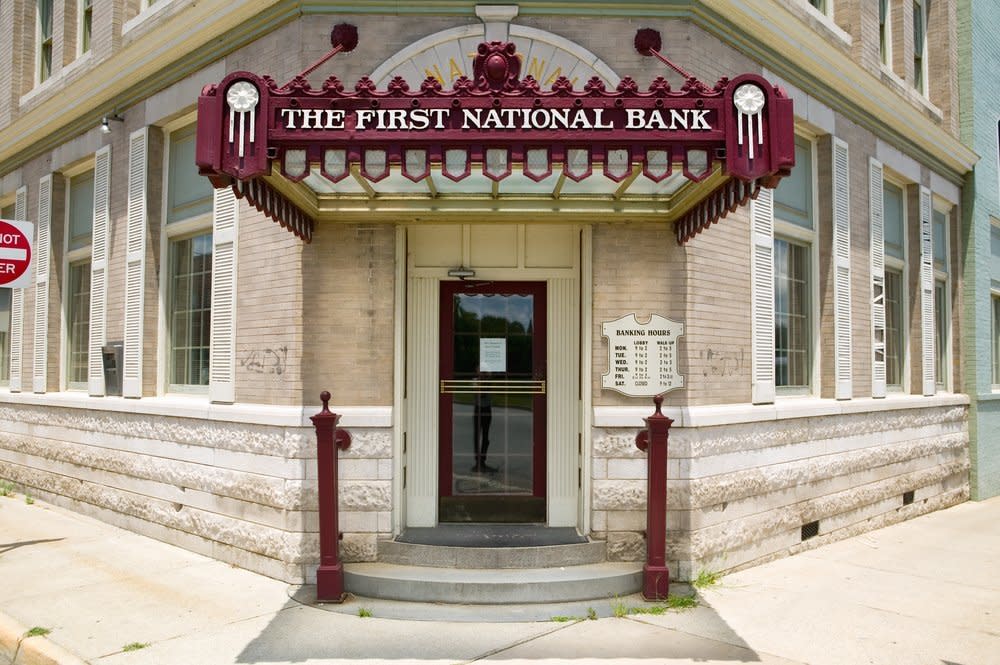Life and Money Advice You Should Never Take From Grandma

Grandmas Don't Always Know Best
Grandparents often have an impulse to endow grandkids with savvy ways to save money. But as valuable as their advice once might have seemed, some conventional wisdom doesn’t stand the test of time. From outdated rules of thumb for investing to irrational fears about credit cards, here are some of the most common money-saving tips that just don’t work anymore.

Avoid Credit Cards
From points to cash back, there are surprisingly profitable rewards programs offered by major credit card companies. People who have trouble paying their debts should avoid credit cards, but if you’re going to spend, there’s no reason not to earn money back in the process.

Invest in Savings Bonds
Long gone are the days when EE savings bonds were guaranteed to double in value every eight years or so. Now, the fixed interest rate for an EE savings bond is just 2.5%. Consider other long-term financial investments instead.

Everyone Should Attend College
Since 2002, the cost of tuition at private universities has leaped 144 percent, and a whopping 171 percent at public universities. An advanced degree might help you land a higher-paying job, but it’s getting more difficult to make enough money to recoup the cost of an education. It’s important to have a plan in place before enrolling to keep student loan debt from becoming debilitating.

Prioritize Home Ownership
The housing crash of 2008 demonstrated that housing isn’t as safe an investment as many thought. A perceived benefit of investing in housing is the tax deduction received on mortgage interest. But this amount is often underwhelming, especially since the 2017 tax law, and can be a pain to calculate.

Plan to Withdraw 4% a Year in Retirement
Financial advisers used to tell clients to plan to withdraw 4 percent every year after retirement. But that plan was popular in the 1990s, when interest rates were considerably higher and life expectancy was lower. It’s best to ignore this bit of outdated wisdom and aim for a more personalized retirement plan.
Related: 18 Things Boomers Need to Stop Saying to Millennials About Money

Follow the 100 Minus Your Age Rule
Another outdated financial rule of thumb says that the percentage of your portfolio that contains stocks should be equal to 100 minus your age. In theory, this minimizes risk over time. The reality is that traditional investing strategies aren’t as rewarding as they once were, and it might be necessary to be more aggressive in planning for retirement.

Hide Cash at Home
There have always been people who prefer to keep their savings in cash, especially now that distrust of banks seems to be rising. But cash is vulnerable to fire, flood, and theft. Instead, store savings in an FDIC-insured bank account that covers each individual up to $250,000.
Related: Money Mistakes You're Probably Making and How to Avoid Them

Buy, Don't Rent
Old wisdom might hold that buying is better than renting, but that’s not always true. Renting a home allows the freedom to move, a more diverse portfolio, and lower upkeep costs. Although buying might build equity over time, sometimes renting affords critical financial flexibility.

Trust the Only Local Bank
The small bank down the street may have been the best option in Grandma’s day. But size may not matter depending on what your needs are — while a small bank may have lower fees, it might not have the long menu of financial services some customers require. Choose a bank based on individual desires, not generalities.

Student Loan Debt is 'Good Debt'
Student loans have relatively low interest rates and are tax-deductible, but to refer to them as “good debt” is misleading. There’s no guaranteed return on the investment, and students who don’t secure a high-wage job soon after graduating might feel crippled by the repayment plan.

Store Money in Gold
Grandma might see gold as a safe, time-tested hedge against inflation. But data suggest gold is just as prone to bubbles and wild swings in valuation as stocks are. Some analysts posit that the price of gold has been sustained by old-fashioned beliefs about its value, indicating a possible bubble.
Find more smart Cheapism articles on personal finance right here.
This article was originally published on Cheapism

